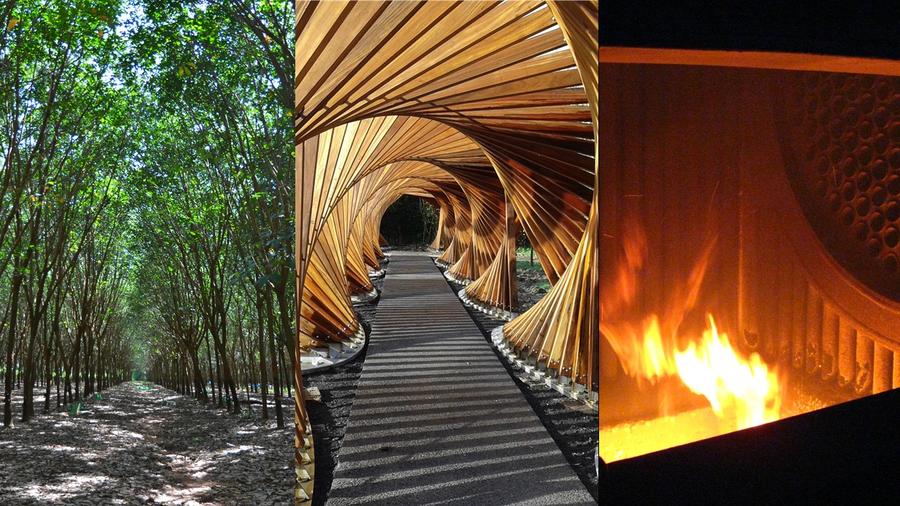The unit
The BioWooEB unit contributes to meeting the material and energy needs of developing countries, such as access to decentralized electricity in rural areas, optimizing the energy efficiency of domestic cooking, improving the quality of rubber, developing materials that are resistant to tropical and Mediterranean climatic conditions for housing, and developing carbon-based materials for effluent treatment.
Our conception: the "cascade" valorization of biomasses
Within the unit, we apply an integrative approach on the continuum "standing biomass-materials-energy", using different types of raw materials (wood from natural forests, plantations, agroforestry, stalks of plants with stipes, bamboo, canes, agricultural residues, ...). The unit develops, with its partners in the South, knowledge and expertise on the adequacy between the available biomass and its various uses in the fields of materials and energy. It designs efficient transformation processes that can be adapted on a small scale in the countries of the South.
Maximize the performance of the biomass value chain, with all the players involved
This is our objective in connection with the stakeholders, through the evaluation and management of trade-offs according to the different uses and contexts. The unit thus participates in the sustainability and efficiency of the use of lignocellulosic resources of agricultural and forestry products.
Strong partnerships with countries in the North and South
The unit's research work is conducted with many recognized French and European research laboratories, but also within the framework of public and private collaborations and partnerships at the national (CIRAD and outside CIRAD) and international levels, including collaborations with universities in the French Overseas Departments (French Guiana and Reunion Island), in Southeast Asia, in West Africa, Central Africa and the Maghreb, and in Latin America.
-
 The BioWooEB research unit conducts research on the valorization of plant biomass with the aim of implementing concrete solutions for the production of bio-sourced products and bio-energy in developing countries by integrating the entire chain "from resource to impact".
The BioWooEB research unit conducts research on the valorization of plant biomass with the aim of implementing concrete solutions for the production of bio-sourced products and bio-energy in developing countries by integrating the entire chain "from resource to impact".
-
 Over time, the BioWooEB unit has developed numerous national and international partnerships. Among these, four universities currently host BioWooEB researchers or engineers on expatriation.
Over time, the BioWooEB unit has developed numerous national and international partnerships. Among these, four universities currently host BioWooEB researchers or engineers on expatriation.
